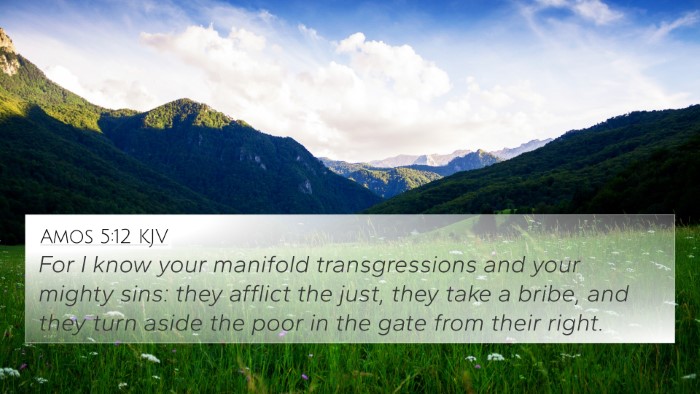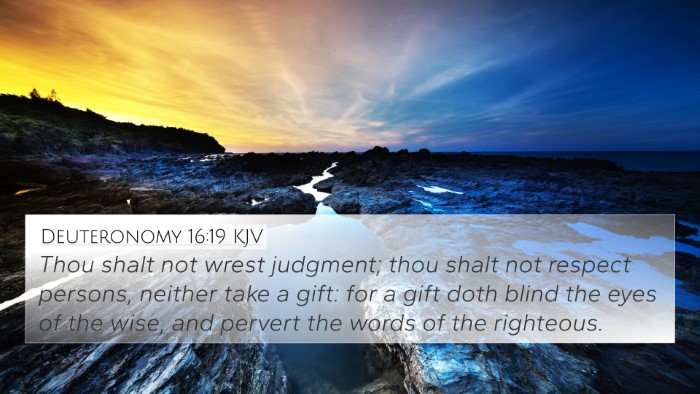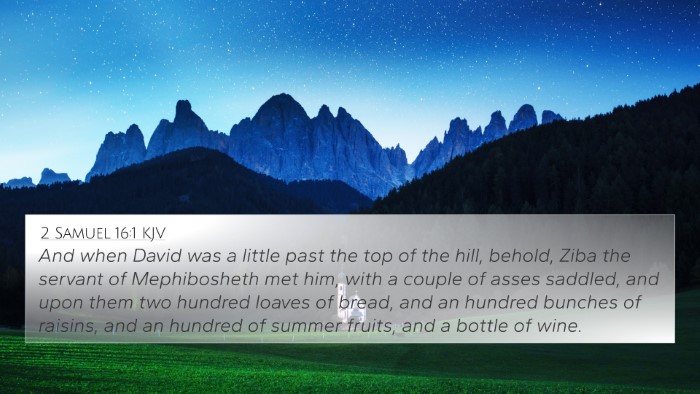Understanding Proverbs 17:8
Proverbs 17:8 states, "A bribe is a precious stone in the eyes of its owner; Wherever he turns, he prospers."
Summary of Insights
This verse highlights the perception of value regarding bribery. To the one offering a bribe, it appears as a treasure that ensures success. However, this perspective is fraught with moral implications and insights from various public domain commentaries reflect on this theme.
Matthew Henry's Commentary
Matthew Henry interprets this verse as a warning regarding the dangers of bribery. He notes that while a bribe may seem beneficial to the giver, it ultimately corrupts justice and true prosperity. The apparent success that comes from bribery is deceptive, providing a temporary gain at the cost of integrity and righteousness.
Albert Barnes' Commentary
Albert Barnes elaborates on the metaphor of the "precious stone," suggesting that bribes may be easily valued by those who seek gain and advantage. However, such pursuits are short-lived and contrary to godly wisdom. He emphasizes that true prosperity comes from righteousness, not from corrupt means.
Adam Clarke's Commentary
Adam Clarke offers insight into the cultural and social context, indicating that bribes were common in the ancient world. He warns that this practice leads to a breakdown of societal integrity and justice, ultimately affecting the prosperity of the community. Clarke asserts that reliance on unjust means will lead to inevitable consequences, contrasting with the lasting rewards of moral living.
Key Themes and Connections
The verse provides fertile ground for Bible verse cross-references and thematic analysis. The core themes include:
- Value of Integrity: This verse showcases the contrast between perceived value and true worth in God's sight.
- Deceptive Prosperity: The fleeting success that comes through wrongdoing is a major focus.
- Social Justice: The impact of bribery on society and justice resonates throughout scripture.
Relevant Bible Cross References
For a deeper understanding, consider the following related verses:
- Proverbs 15:27 - "He who is greedy for gain troubles his own house, but he who hates bribes will live."
- Proverbs 28:21 - "To show partiality is not good, because for a piece of bread a man will transgress."
- Job 15:34 - "For ruin comes to the wicked, and disaster to the workers of iniquity."
- Isaiah 1:23 - "Your rulers are rebels, and companions of thieves; everyone loves bribes and runs after gifts."
- Micah 7:3 - "Their hands are on what is evil, to do it well; the prince asks, the judge is for a reward, and the great man utters his evil desire."
- Exodus 23:8 - "And you shall take no bribe, for a bribe blinds the discerning and perverts the words of the righteous."
- Ecclesiastes 7:7 - "Surely oppression destroys a wise man's reason, and a bribe debases the heart."
Exploring Connections in Scripture
The connections between these verses elucidate a consistent theme across the Bible regarding the dangers of corrupt practices. Cross-referencing Biblical texts allows us to see these themes interwoven throughout scripture.
These truths spur the believer to reflect on how societies can be cleansed of such practices and inspire individuals to seek righteousness over transient gain.
Tools for Bible Cross-Referencing
There are various tools for Bible cross-referencing available, including:
- Bible Concordance: A comprehensive index of words used in the Bible linked to their locations.
- Bible Cross-Reference Guide: Specific resources that detail links between verses and themes.
- Cross-Reference Bible Study: Methods to engage with the scripture deeply through comparative analysis.
Conclusion
Proverbs 17:8 serves as a profound reminder of the moral implications of seemingly beneficial actions. By reflecting on the insights provided by public commentaries and considering the interconnectedness of scriptural themes, believers can cultivate a deeper understanding of God's perspective on morality, integrity, and true success.

















